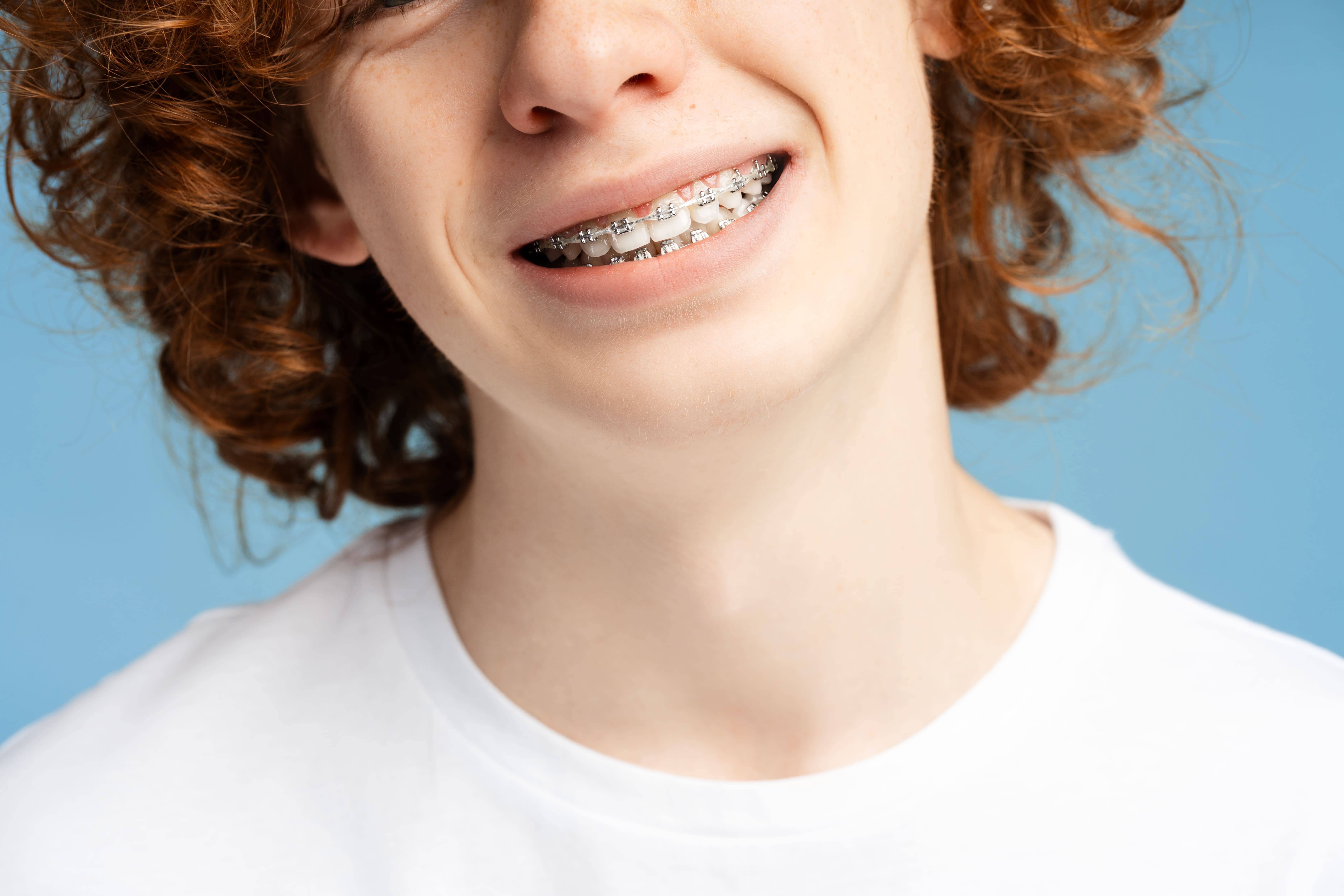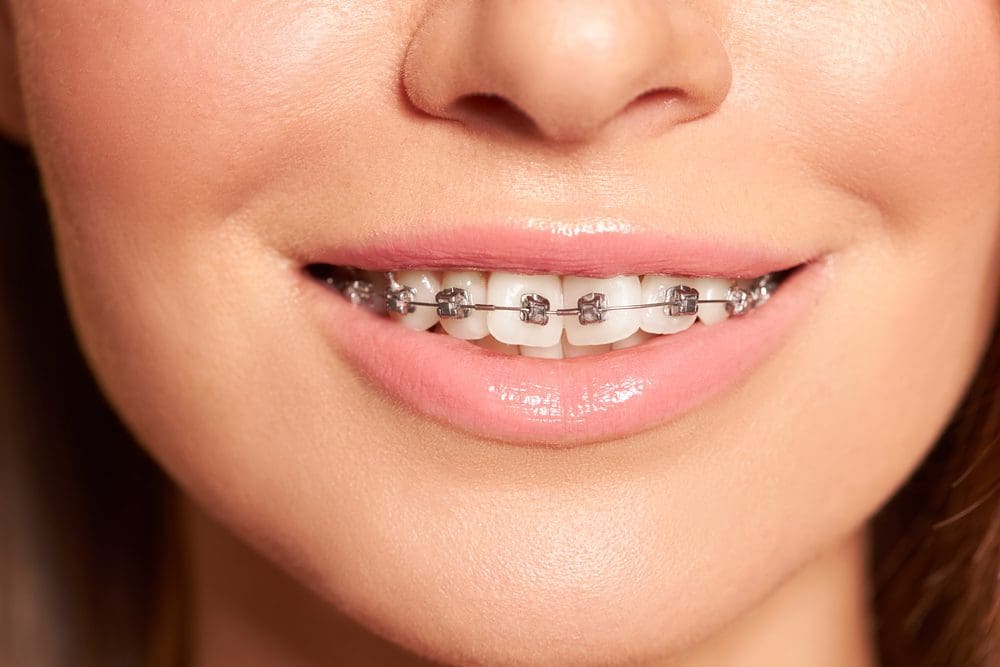Posted on February 25, 2025

Teenagers may need braces if their teeth are crooked, have noticeable spaces, or if they have bite-related issues like overbites or underbites. Other signs include difficulty chewing, speech challenges, or frequent biting of the inside of the cheek. These problems can affect oral function and confidence, making early treatment a smart choice.
Regular check-ups help identify alignment concerns, but the best way to determine if your teen needs braces is through a professional evaluation. At Smilebliss in Marietta, specialists assess your teenager’s smile and overall oral health to provide the right guidance.
Contact us today to find out if braces are the right choice for your teen and start their journey toward a healthier, more confident smile.
Some orthodontic issues are easy to notice, while others develop gradually. Addressing them early can lead to better long-term results in both function and appearance. Below are common signs that may indicate your teen could benefit from braces.
 One of the most common reasons teens need braces is when teeth are too close together or out of alignment. Overlapping or uneven teeth can make daily cleaning difficult. When food and plaque get trapped between them, the risk of cavities and gum inflammation increases.
One of the most common reasons teens need braces is when teeth are too close together or out of alignment. Overlapping or uneven teeth can make daily cleaning difficult. When food and plaque get trapped between them, the risk of cavities and gum inflammation increases.
Starting treatment early can help prevent more complex alignment problems later. Making adjustments before all adult teeth settle into place supports better alignment and makes oral hygiene easier.
A misaligned bite can cause discomfort and affect daily functions like chewing and speaking.
Both conditions can lead to uneven tooth wear, jaw pain, and difficulty with speech. A large overbite may also increase the risk of front teeth getting damaged in falls or accidents. Addressing bite problems early allows for better balance and long-term function.
Spaces between teeth are sometimes natural, but they can also develop if baby teeth fall out too soon or if adult teeth do not grow in correctly. Gaps may cause food to get stuck, leading to gum irritation and plaque buildup.
Braces help close these spaces, improving both function and appearance. Proper spacing makes brushing and flossing more effective, lowering the chances of oral health issues.
If your teen struggles to bite into foods like apples or sandwiches, misalignment could be the cause. When teeth do not fit together correctly, chewing can become uncomfortable or even painful. Over time, this strain on the jaw muscles can lead to ongoing discomfort or uneven wear on teeth.
Braces help align the teeth properly, making chewing more comfortable and reducing stress on the jaw.
Frequent jaw pain, stiffness, or clicking noises while eating can be signs of jaw misalignment. These issues often indicate that the bite is off, causing extra strain on the jaw joint and surrounding muscles.
Braces gradually shift teeth into better positions, helping the jaw work more comfortably and reducing stress on the muscles and joints.
Braces do more than straighten teeth. They also improve function, comfort, and long-term oral health.
 Straightening teeth makes daily cleaning more effective, lowering the risk of plaque buildup, cavities, and gum inflammation. When teeth are properly aligned, brushing and flossing become easier, which helps support better oral health.
Straightening teeth makes daily cleaning more effective, lowering the risk of plaque buildup, cavities, and gum inflammation. When teeth are properly aligned, brushing and flossing become easier, which helps support better oral health.
For teens with crowded teeth, braces create the right amount of space, making maintenance more manageable and promoting a healthier smile.
An improper bite can lead to difficulty chewing, speech problems, and uneven tooth wear. If left untreated, these issues may result in jaw pain, headaches, or long-term discomfort.
Braces gradually adjust the alignment of the upper and lower teeth, reducing strain on the jaw, preventing unnecessary wear on teeth, and making eating and speaking more comfortable.
A misaligned jaw can contribute to headaches, muscle tension, and airway issues. Some teens may also develop mouth-breathing habits that affect their sleep quality.
Braces help improve bite alignment and jaw positioning, leading to better comfort, breathing, and posture. Starting treatment at the right time can contribute to long-term improvements in overall health.
Teeth play an important role in forming sounds when speaking. Certain sounds may be harder to pronounce when they are not in the right position. Overbites, underbites, and gaps between teeth may contribute to speech challenges, such as lisps or difficulty articulating certain words.
Braces can help align teeth in a way that allows for clearer speech, making communication easier and improving confidence.
Starting orthodontic care at the right time makes adjustments more manageable before all adult teeth are in place. It can also reduce the risk of long-term issues, improve oral hygiene by aligning teeth properly, and help your teen feel more confident about their smile.
While some cases require waiting until all permanent teeth have come in, many orthodontic concerns can be addressed more effectively with early evaluation and gradual adjustments.
Braces do more than improve appearance. They help with comfort, function, and long-term oral health. If your teen has crowded teeth, spacing issues, or bite problems, an orthodontic evaluation in Marietta can help determine the best treatment.
At Smilebliss, specialists provide expert guidance and treatment plans tailored to your teen’s needs. Early intervention leads to better and more effective results, making now a great time to explore options.
Schedule a consultation to learn more about how braces can help your teen achieve a healthier, more confident smile. Call us today!